New Cervélo R5: first ride on Jumbo-Visma's climbing bike
Our first impressions of the bike Roglic has been riding all year - that has just been launched to the public
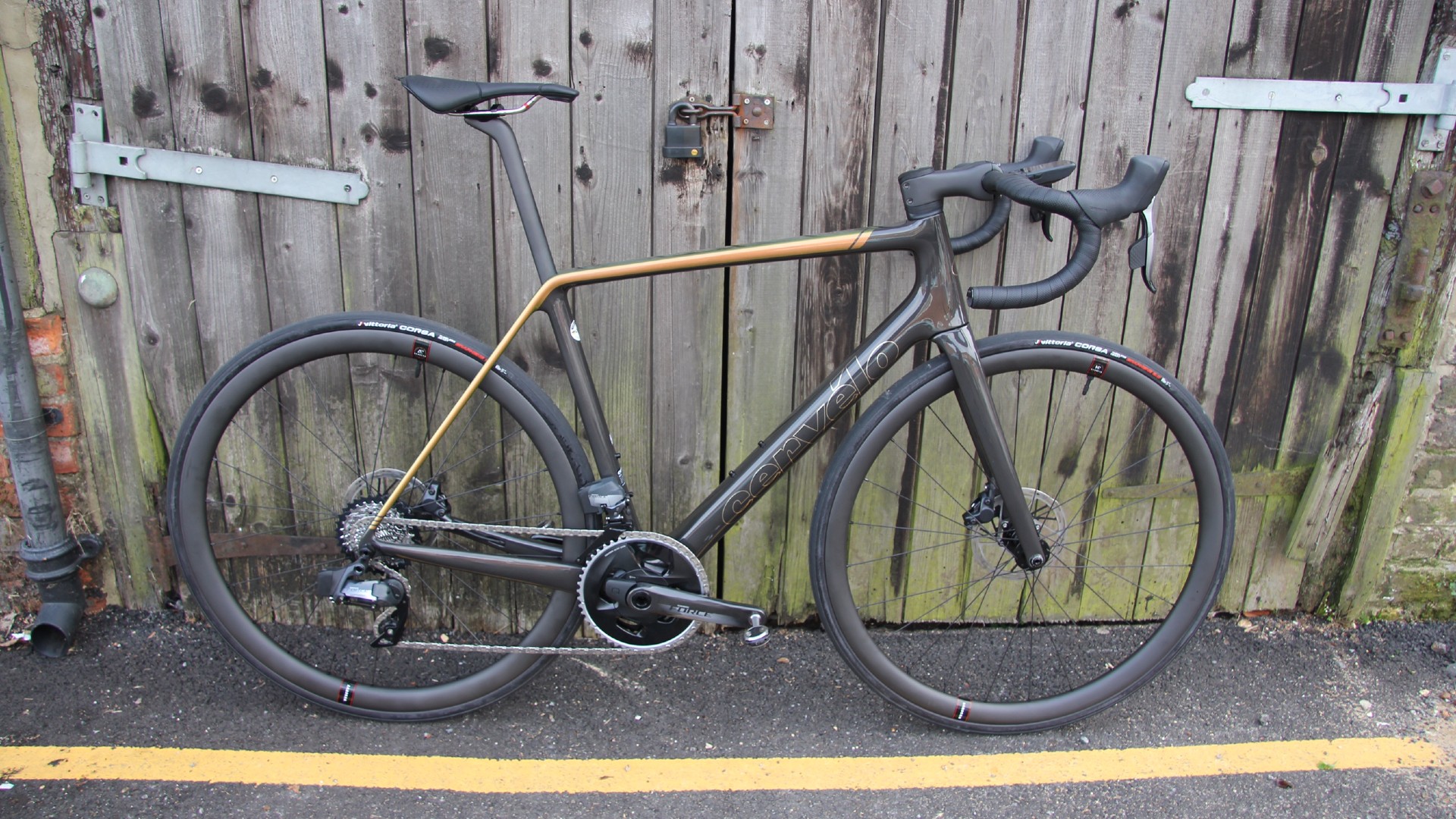
The Cervélo R5 is a beautifully balanced bike that feels in command of every situation, whether climbing, descending or hard riding on rough roads. The low weight and high stiffness make it surge uphill, while the work Cervelo has done to make the front end more 'liveable' seems to have paid off - though I can't claim to have ridden 100 miles every day for three weeks just yet.
-
+
Low weight
-
+
High stiffness
-
+
Rear end comfort
-
+
Front end directness
-
+
Classic looks
-
-
The usual one: WorldTour-level bikes are expensive
You can trust Cycling Weekly.
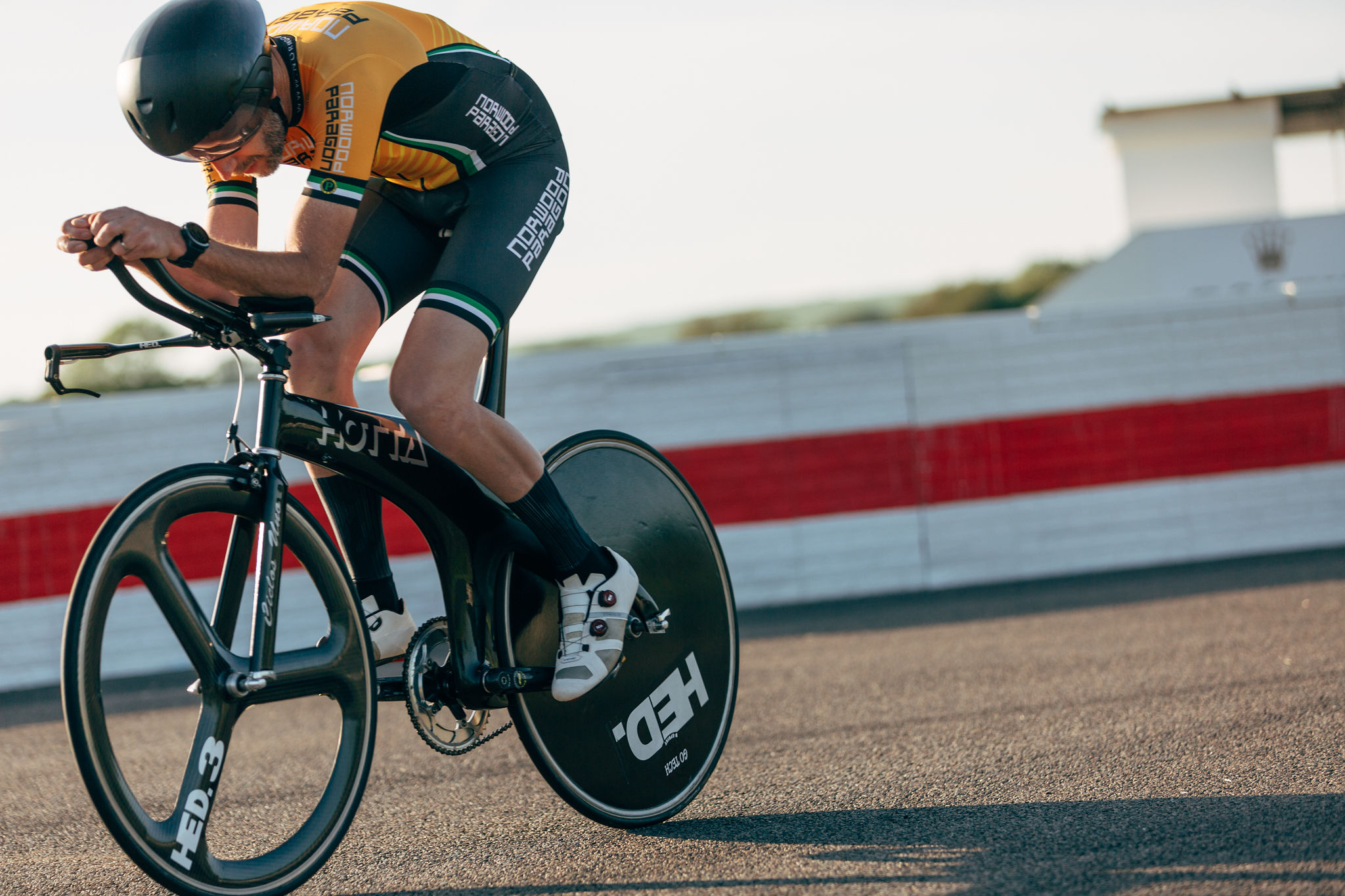
The new Cervélo R5 has been dangled in front of us all year, steadily racking up a season of stunning wins under the likes of Primoz Roglic and Wout Van Aert while all we journalists could do was take photos and speculate.
It’s not the way bike launches normally happen, but it’s a surefire way to build up excitement. Additionally, a new bike that already has an impressive palmares that includes Grand Tour wins, and which was one of two bikes along with the Cervélo S5 aero bike to win the Vuelta, is more race proven than most.
We got all the details of the new climbing bike a couple of weeks ago - it’s all in my launch story - and I finally got to ride the new R5 just before the embargo lifted.
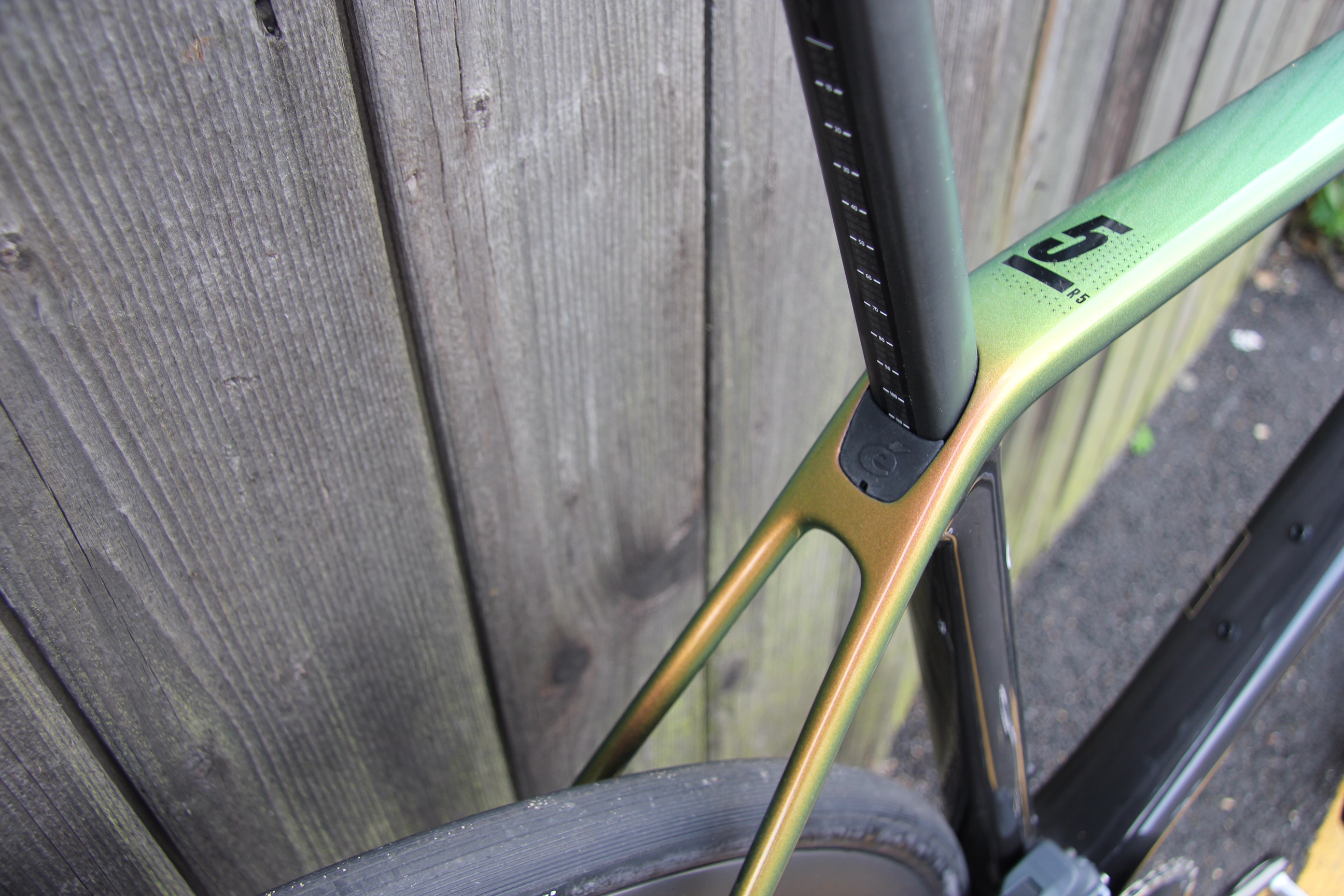
Visually the new Cervélo R5 is not radically different from the old one. Cervélo has not followed the herd and dropped the seatstays. The Lime/Black paint scheme even accentuates that the top tube flows directly into the seatstays.
The seat tube cluster itself has a lower profile, however, with Cervélo bringing the seatpost wedge inboard under a rubber cover for a claimed aerodynamic improvement thanks to the ‘fastback’ design.
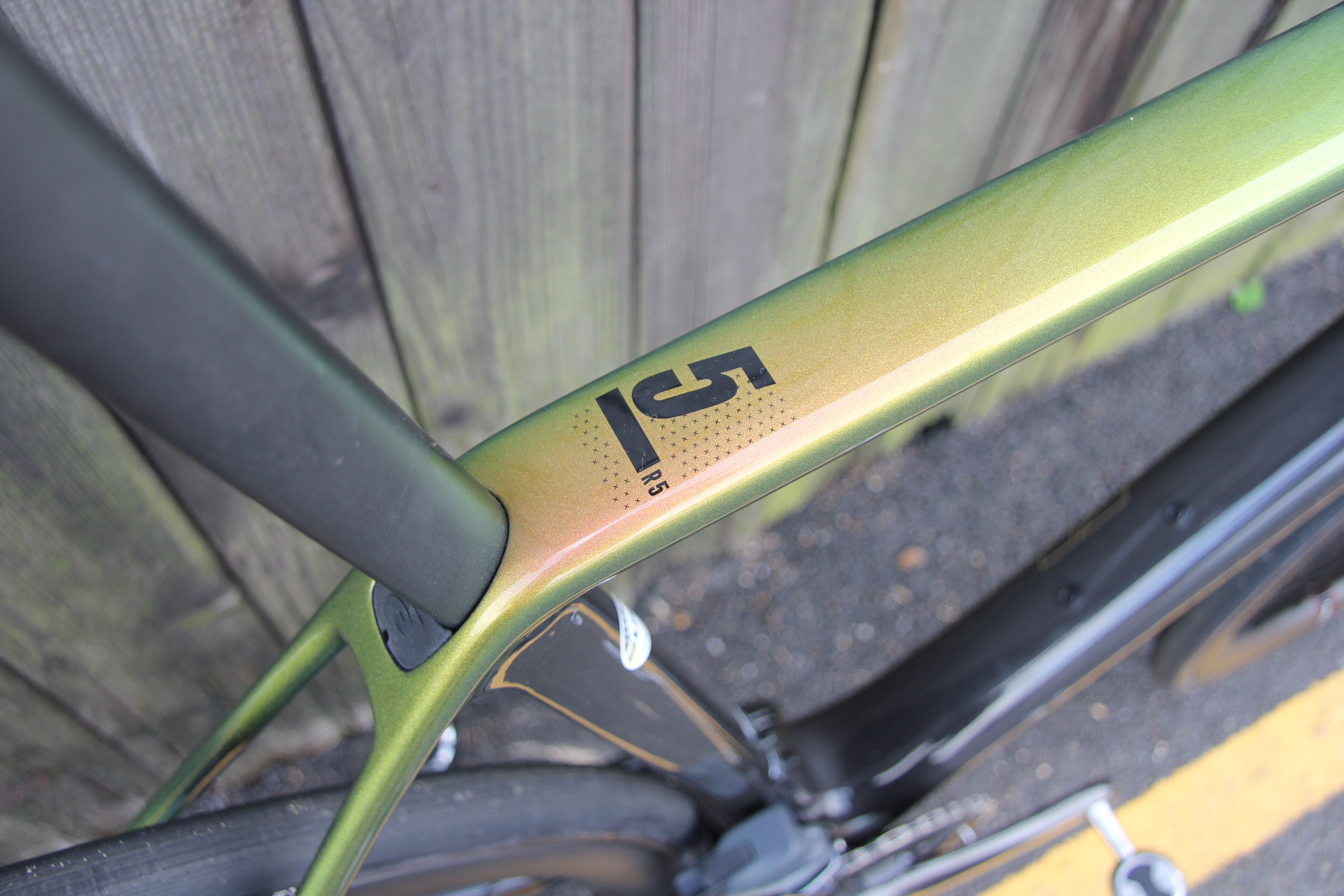
That top tube/seat tube/seatstay juncture has also dropped 15mm, making the R5 frame even more compact before. Cervélo explained that a compact frame is stiffer as well as lighter - something Giant first pioneered with the TCR back in the 1990s and interesting to see coming back round, apparently.
As for its weight, Cervélo claims 703g for the size 56, painted. This is 130g lighter than the outgoing R5 frame.
The seatstays themselves are still incredibly thin - more pipe cleaner than pencil. However, as Steven Kruiswijk demonstrated in the Tour de France after one of his seatstays broke clean off in a crash and he finished the stage apparently without noticing, they play a minimal role in the bike’s structure.
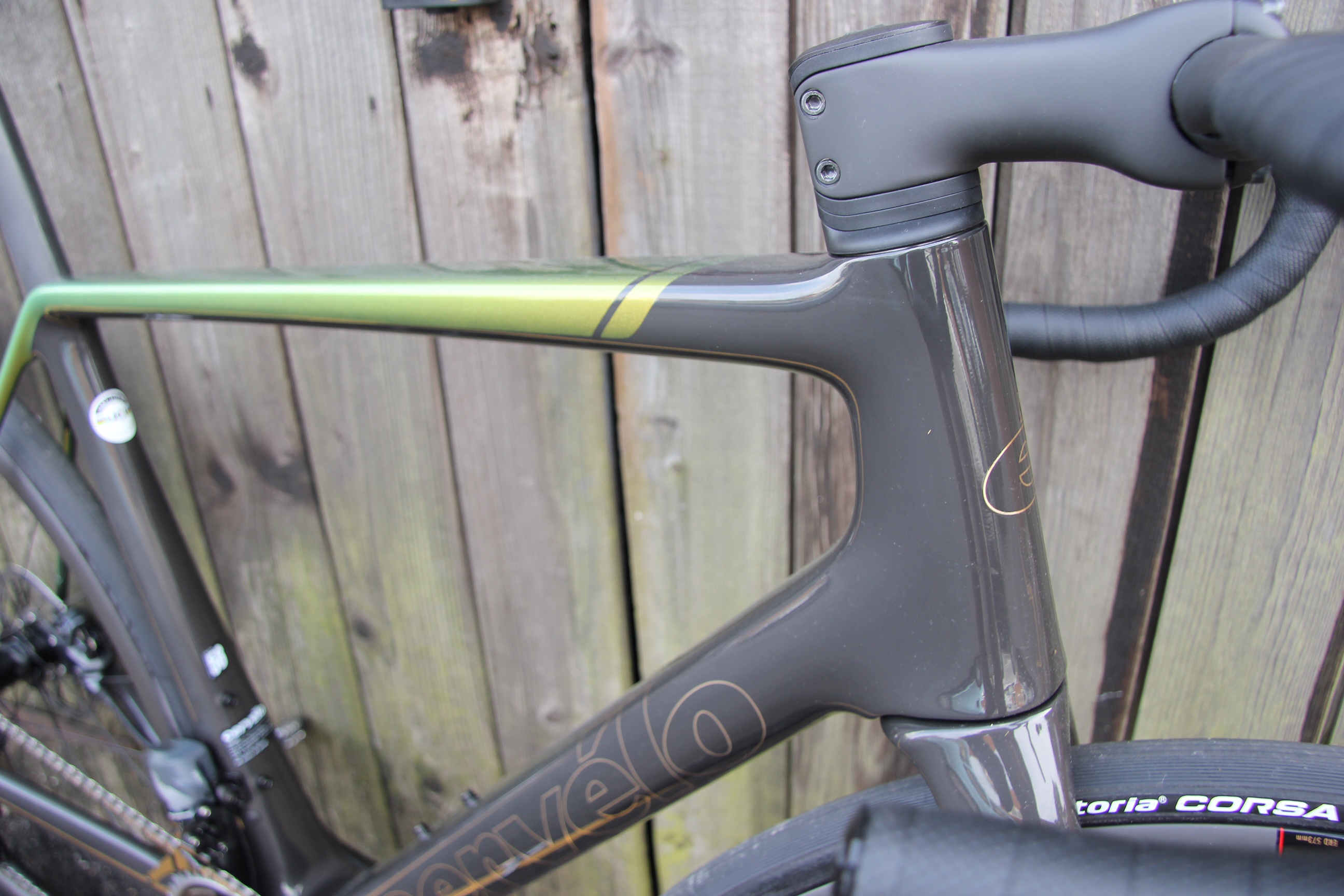
The down tube is huge by contrast, but not quite as huge as the previous R5’s ‘Squoval Max’ down tube. It’s not so easy to see this with the naked eye, but Cervélo engineering manager Scott Roy told me that reducing the cross section and therefore the torsional stiffness of this tube is all part of making the front end of the R5 more “liveable”.
The redesigned fork plays another critical part in improving front-end ride feel. Pro and consumer feedback told Cervélo that the R5 was a little harsh at the front, especially towards the end of a Grand Tour. The Canadian brand says Tom Dumoulin, who rode the R5 with Sunweb and then again when he moved to Jumbo-Visma this year, was very vocal about this.
The new R5 fork has slightly deeper blades than the previous one: Roy said lateral stiffness had been maintained while longitudinal stiffness reduced via a combination of tube shapes and carbon layup.
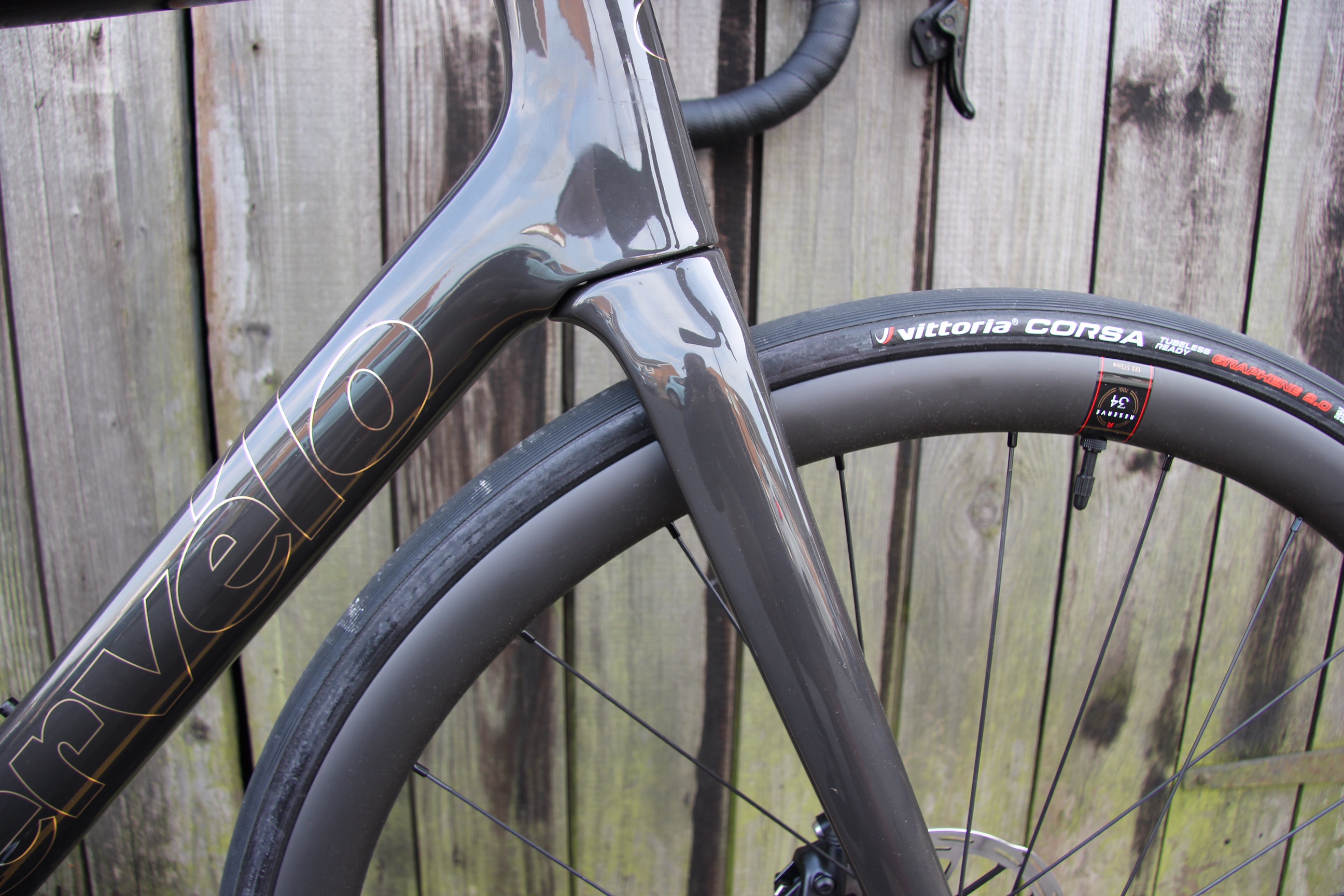
The fork also has a lipped section behind the crown that Cervélo calls a “chin”: this is designed to clean up the airflow as it transitions from the fork and head tube to the down tube and the reason for this is that the new R5 was originally not so efficient aerodynamically due to the down tube being smaller with a different-shaped leading edge. Cervélo says this chin section, the fastback seatstays and the newly hidden cables all make up the watts lost by the reshaped down tube, claiming that the new R5 is in fact slightly faster in the wind tunnel.
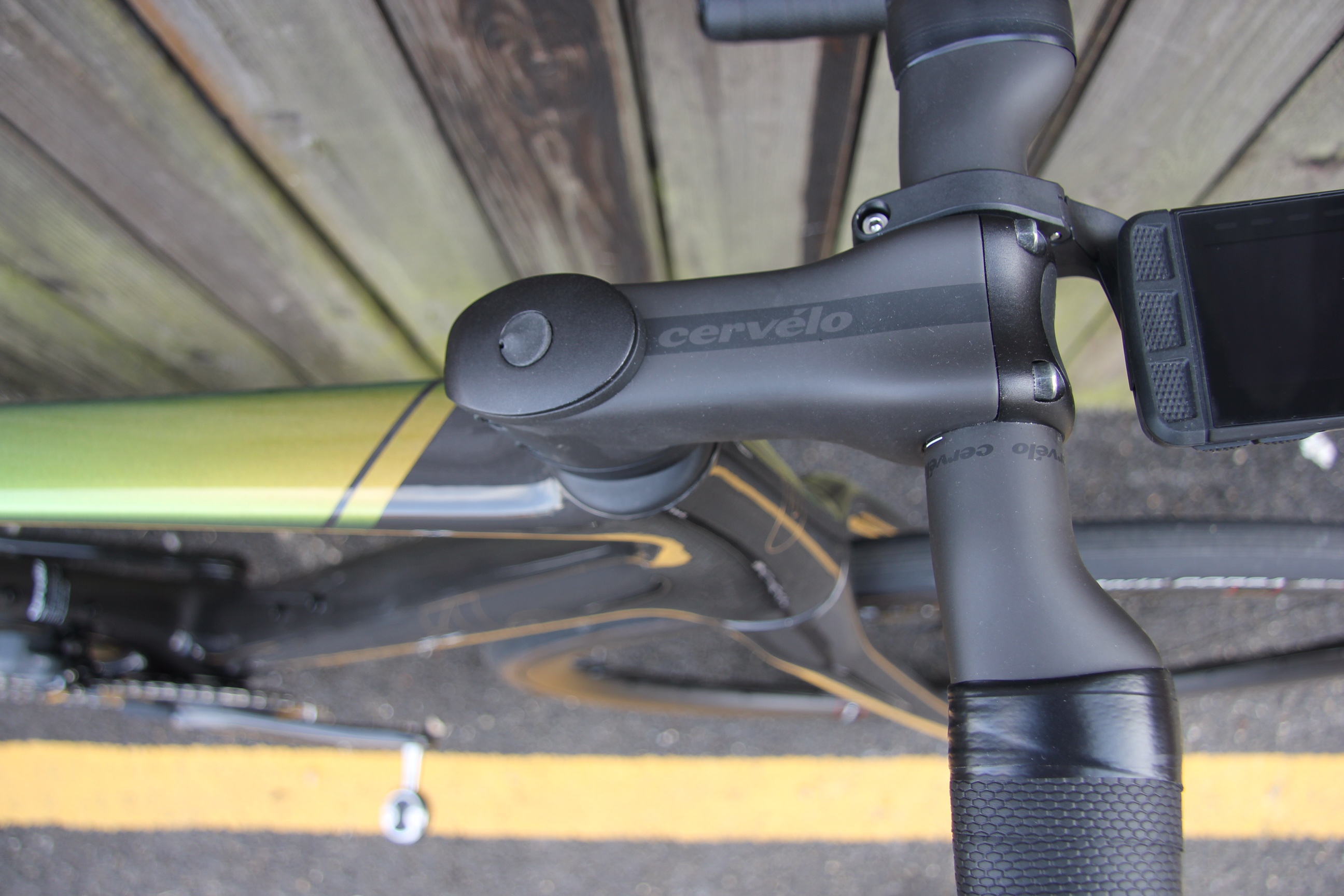
At a guess the integrated cockpit will be where most watts are saved. For more details about the internal routing through the bar, stem and head tube - and for the rationale behind it - have a look at the launch story.
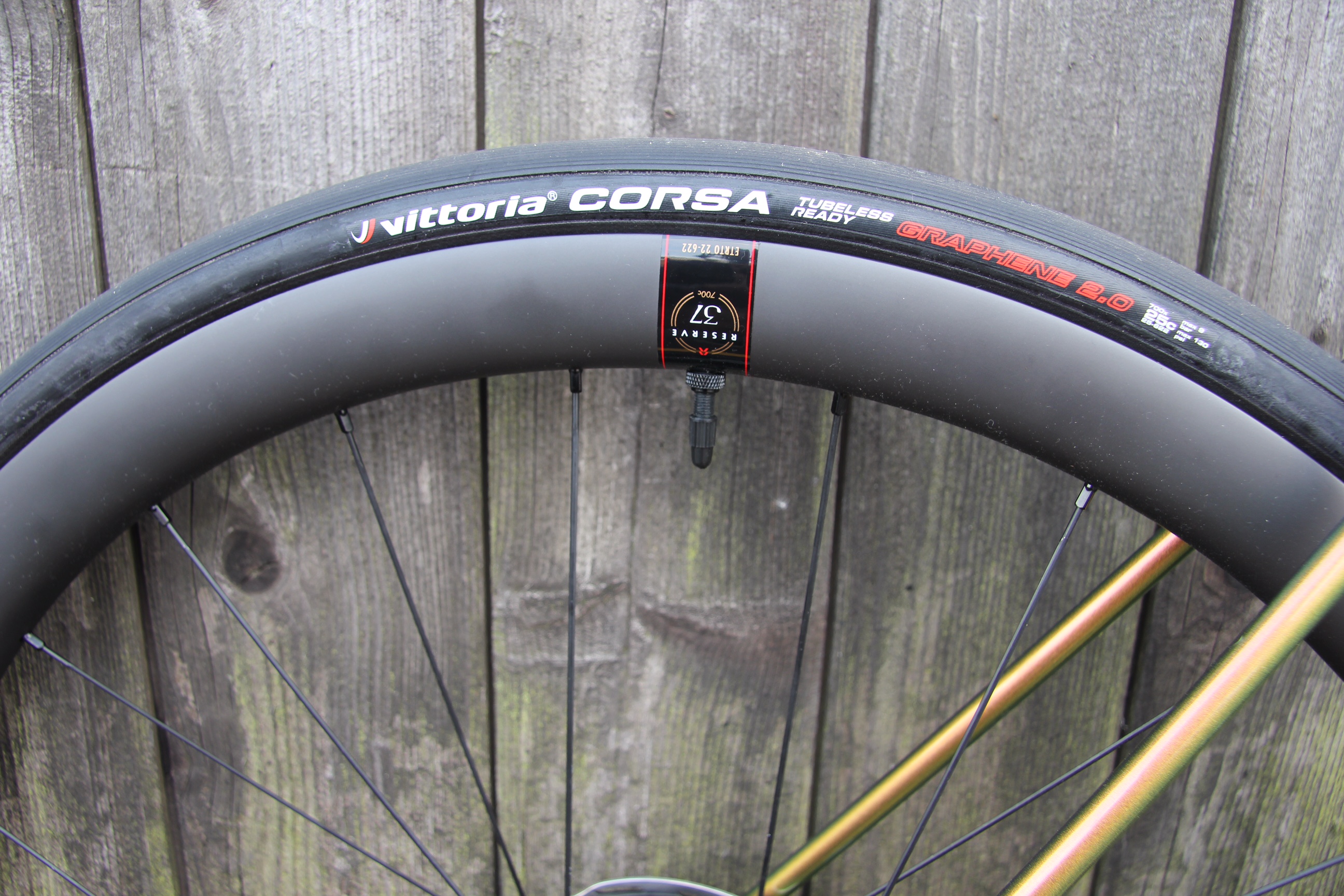
And finally, all four stock builds of the Cervélo R5 roll on the new Reserve 34/37 wheels, which have differential rim profiles and a mini-hook (they are not fully hookless) which Cervélo says helps them achieve a low weight of around 1,300g.
Our demo bike was equipped with SRAM Force eTap AXS, costing £8,599/$8,400, the lowest-priced build in USD but second lowest in GBP (SRAM is cheaper in the US market). It’s worth noting that the two SRAM builds get power meter chainsets whereas the two Shimano ones don’t.
The weight is a pretty impressive 7.4kg. With the frame weight down 130g to a claimed 703g Cervélo say it’s easy to get this bike down to the UCI minimum weight of 6.8kg.
The Cervélo R5 is all about climbing - and descending. For speed on the flat, there’s the Cervélo S5.
So I headed for two of Surrey’s most iconic climbs - Leith Hill and Box Hill - via a series of twisty lanes with plenty of potholes, needless to say, interspersed with stretches of smooth tarmac. My aim was to take the R5 over a bit of everything.
Cervélo talked a lot - almost exclusively in our webinar - about getting front-end comfort perfect, but I was immediately struck by how incredibly plush the rear end is.
This will undoubtedly be helped by the longer length of seatpost thanks to the 15mm lower top tube/seat tube juncture, but the D-shaped seatpost itself is incredibly flexible fore-aft. Over a big bump for me I would estimate I was getting up to 10mm of travel and a heavier rider could get even more.
My ride starts with a short, sharp hill, which I’ve found gives an immediate indication of a bike’s climbing feel. The R5 surged with each pedal stroke, as only the lightest, stiffest bikes can.
When I reviewed four £5K bikes earlier this year my fitness was at a higher level, partly due to riding them up Leith Hill repeatedly, so despite the R5’s ability on climbs, which based on feel was head and shoulders above those bikes, I can’t boast any Strava segment-busting stats. Having said that, there were only a few seconds in it on the uphill segments, which surprised me given my slower second half of the season.
However, I am still in a good position to do some fast descending, if you know what I mean, and sure enough I bagged a few PRs coming down from Coldharbour. Descents are perfect for giving an idea of front-end stiffness, or lack of, and I found the R5 to be super direct. It was my colleague Michelle Arthurs-Brennan who rode the previous R5 and, unlike Tom Dumoulin, she didn’t find it to be too harsh. For me, any stiffer at the front than the new R5 would be too stiff, which suggests to me Cervélo has got it right.
The last section of Leith Hill is very steep with some bends which, if you’re not totally confident in your bike’s handling, require braking. By this stage of the ride I was already totally confident in the R5, so I let the brakes off and steered around the final right hander into the ‘Coldharbour ½ mile Blitz’ segment for a PR of 39 seconds and an average of 46.4mph (the KOM is 33 seconds).
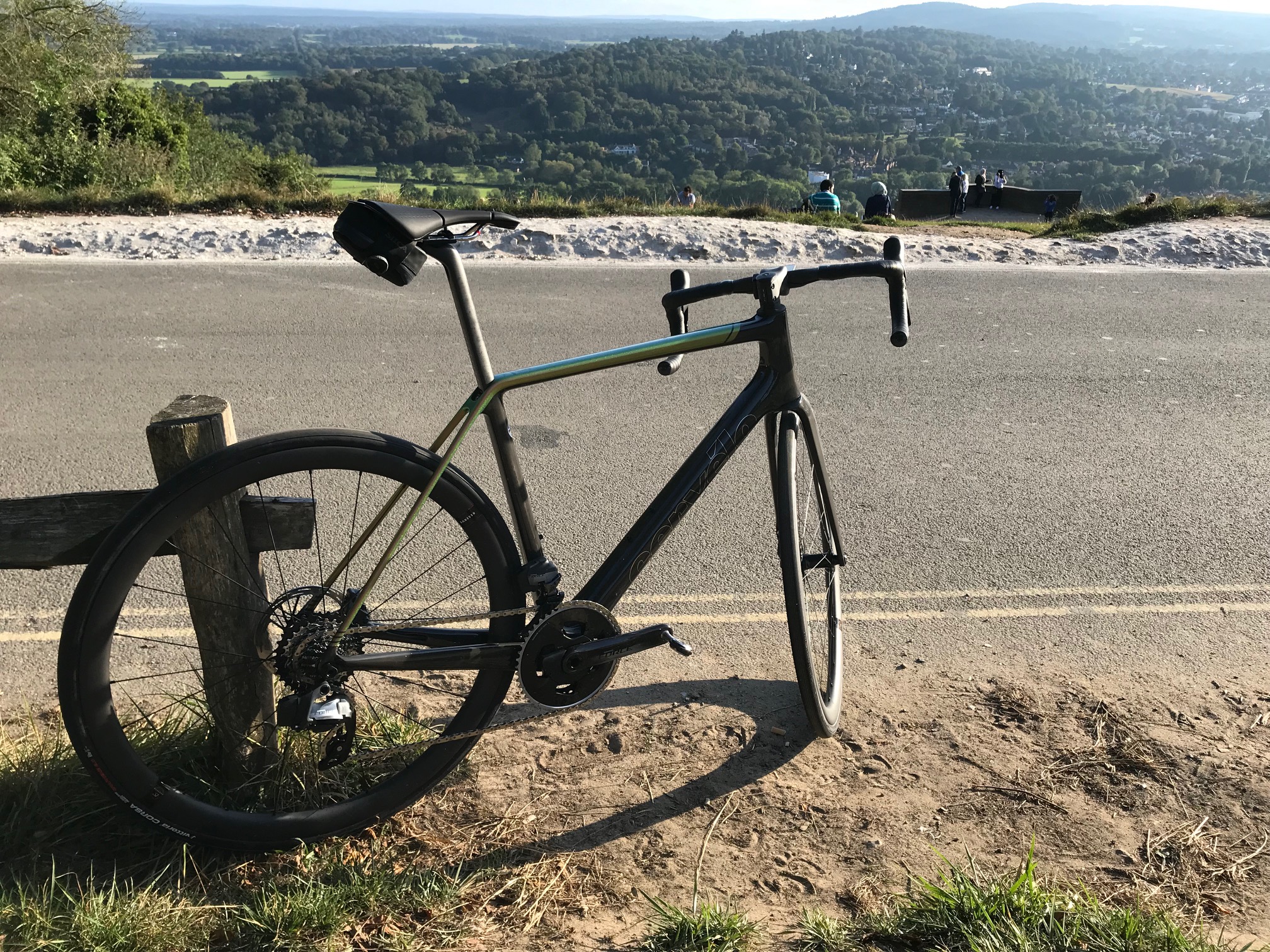
Cervelo designed the R5 to specialise on climbs and descents, and it does those in its sleep. But I also found myself really enjoying it on the flat. The rear-end comfort soaked up everything in sight and the classic geometry with the 73deg seat angle and 15mm setback seatpost that slightly steepens it were perfect for rolling along at a good pace in an aggressive tuck. That said, the stack and reach are surprisingly easy to get on with for non-pros, even though this is a WorldTour race bike. The size 56 almost exactly matched my own bike-fitted dimensions.
The only issue I had was with a slipping seatpost. I torqued it to 8Nm as per the instructions by the wedge bolt but out on the road I had to stop a couple of times and crank it up as far as I dared. I’ve since slathered Muc-Off Carbon Gripper paste on the post and down the seat tube - there seemed to be only the merest smear of it from the factory - and that's done the trick.
For pricing and availability of all the models see the launch story.

Thank you for reading 20 articles this month* Join now for unlimited access
Enjoy your first month for just £1 / $1 / €1
*Read 5 free articles per month without a subscription

Join now for unlimited access
Try first month for just £1 / $1 / €1
Get The Leadout Newsletter
The latest race content, interviews, features, reviews and expert buying guides, direct to your inbox!
Simon Smythe is a hugely experienced cycling tech writer, who has been writing for Cycling Weekly since 2003. Until recently he was our senior tech writer. In his cycling career Simon has mostly focused on time trialling with a national medal, a few open wins and his club's 30-mile record in his palmares. These days he spends most of his time testing road bikes, or on a tandem doing the school run with his younger son.
-
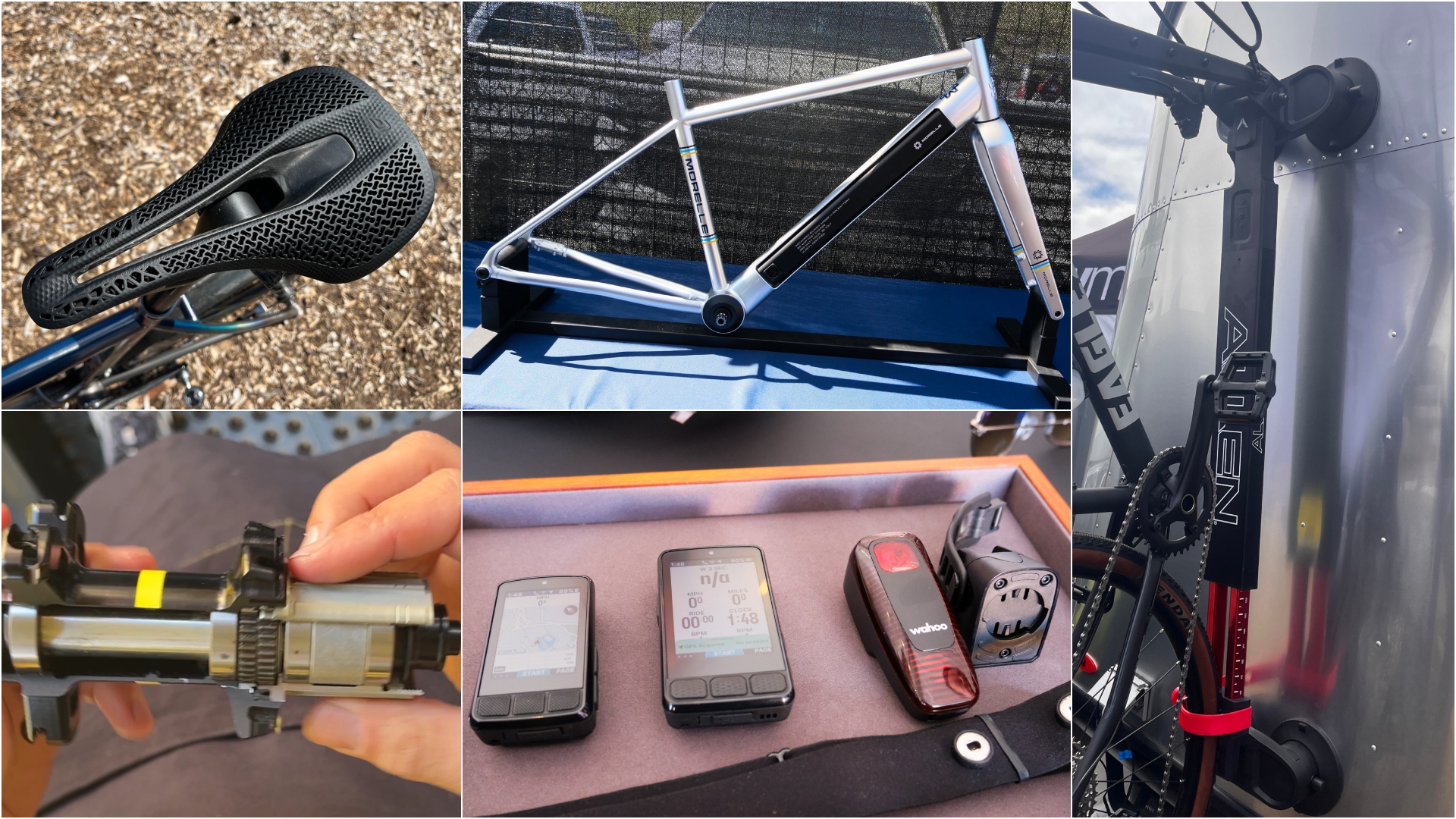 A bike rack with an app? Wahoo’s latest, and a hub silencer – Sea Otter Classic tech highlights, Part 2
A bike rack with an app? Wahoo’s latest, and a hub silencer – Sea Otter Classic tech highlights, Part 2A few standout pieces of gear from North America's biggest bike gathering
By Anne-Marije Rook Published
-
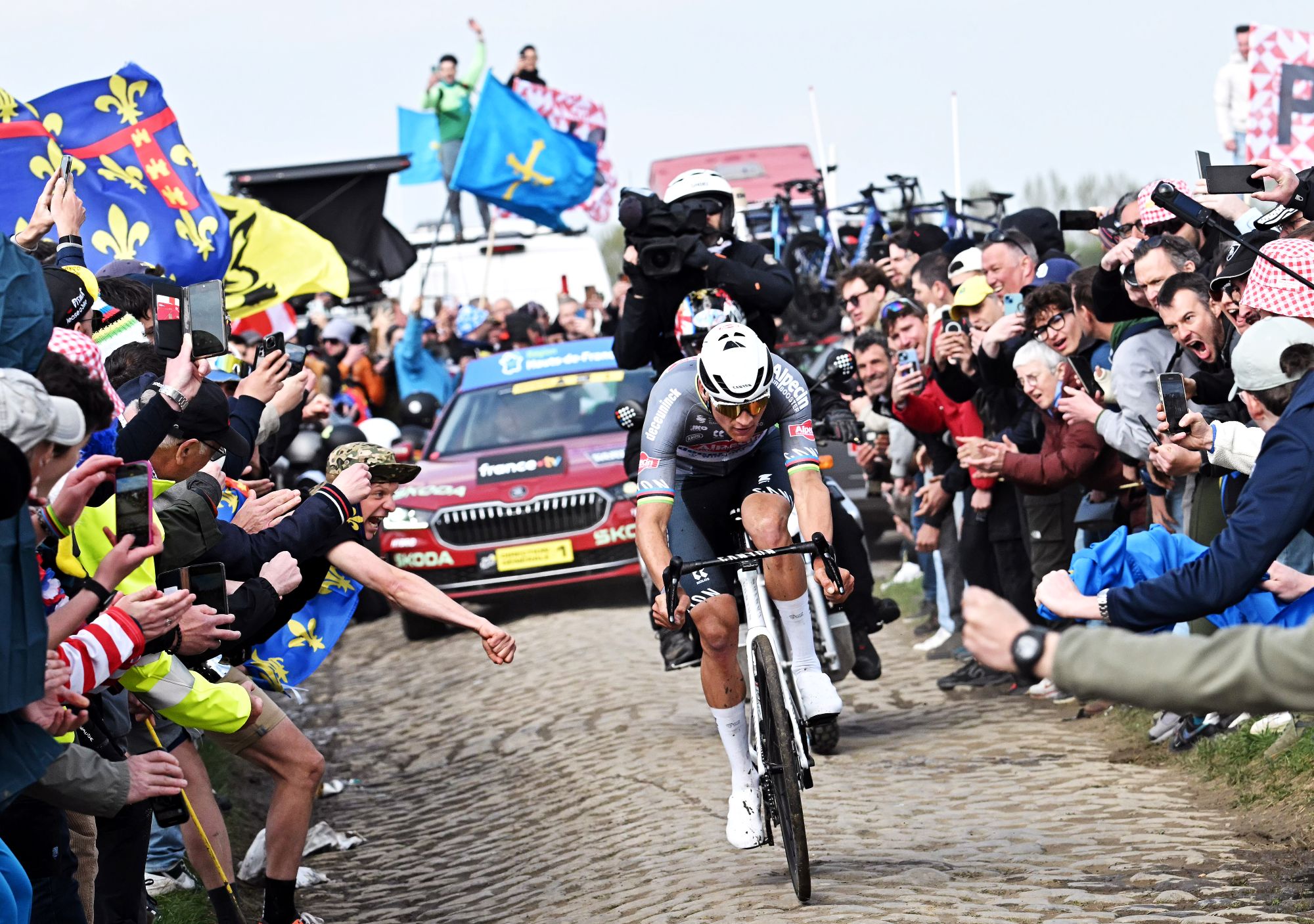 Cycling's riders need more protection from mindless 'fans' at races to avoid another Mathieu van der Poel Paris-Roubaix bottle incident
Cycling's riders need more protection from mindless 'fans' at races to avoid another Mathieu van der Poel Paris-Roubaix bottle incidentCycling's authorities must do everything within their power to prevent spectators from assaulting riders
By Tom Thewlis Published
-
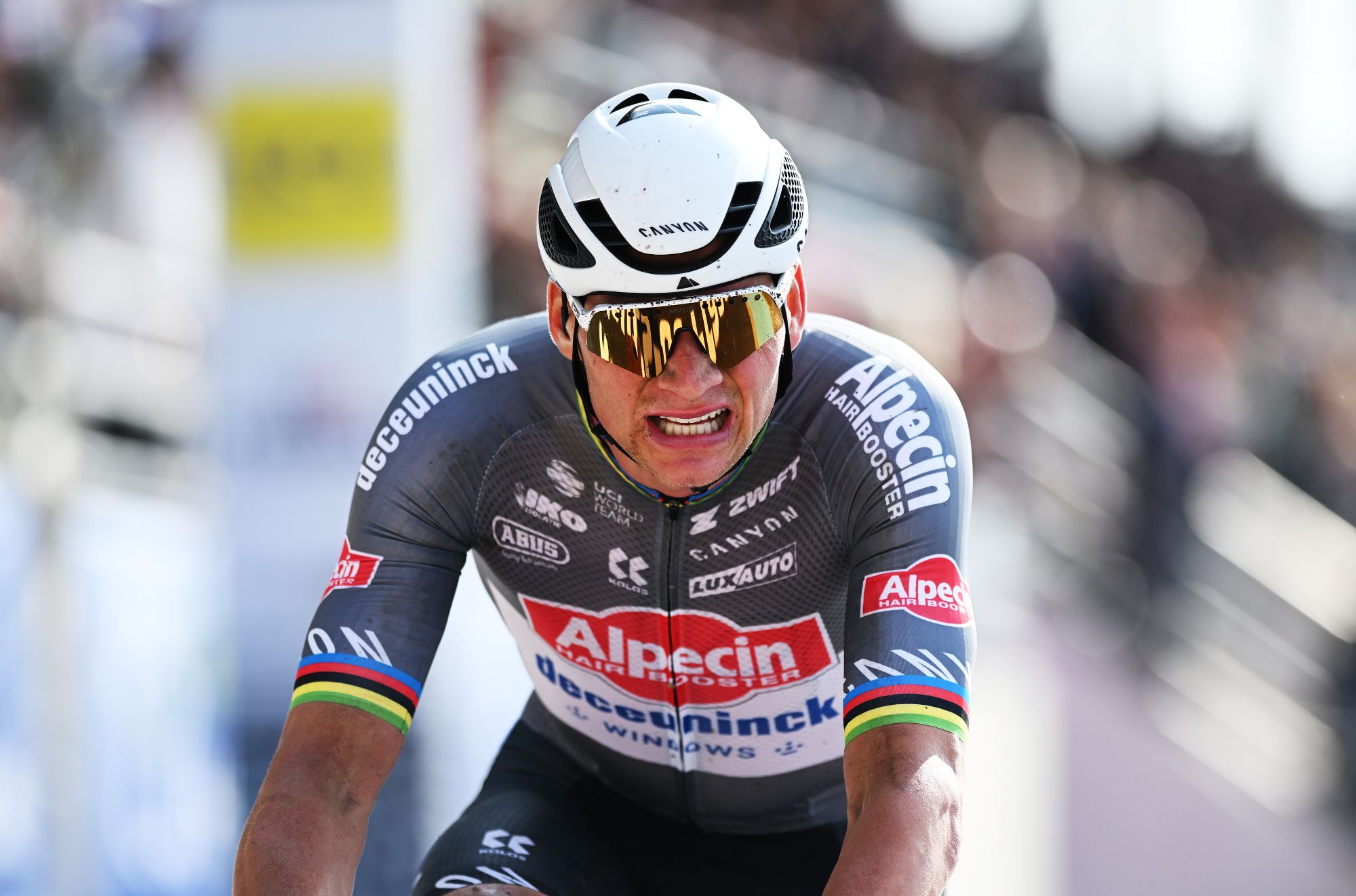 Man hands himself in to Belgian police after throwing full water bottle at Mathieu van der Poel during Paris-Roubaix
Man hands himself in to Belgian police after throwing full water bottle at Mathieu van der Poel during Paris-Roubaix30-year-old was on Templeuve-en-Pévèle cobbled sector when television pictures showed the bottle hitting him in the face
By Tom Thewlis Published